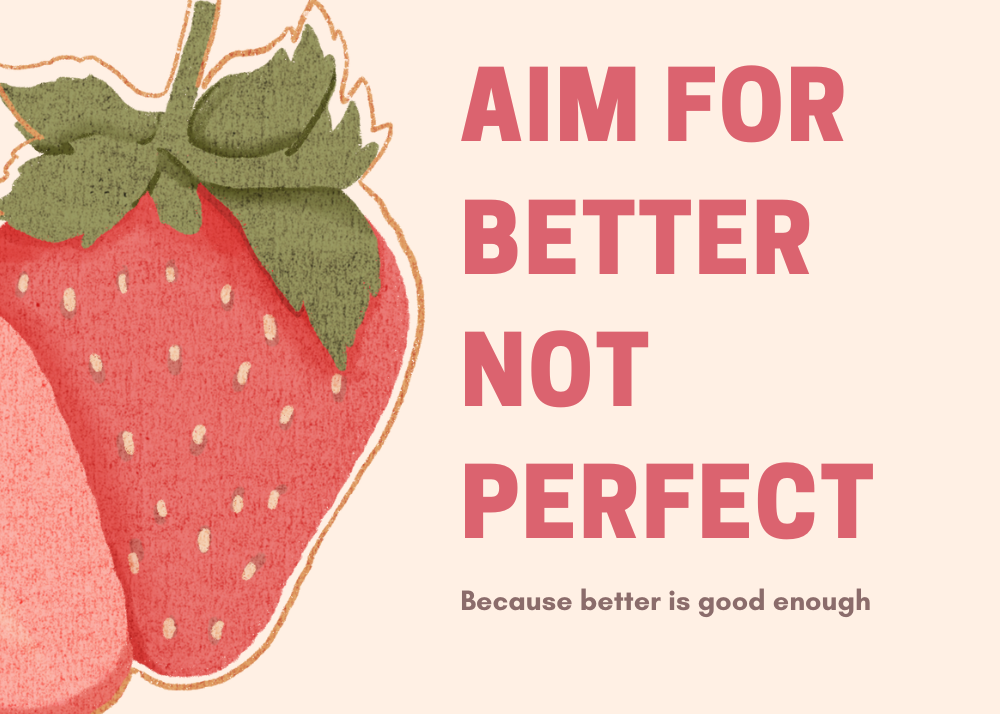The second component of a healthy diet is that the diet should be sustainable. By that I mean, that the foods that are being eaten should fit within your typical budget, availability, time constraints and you should like it. That means that it shouldn’t feel like a chore and be something that you can do every day for your whole life.
The Unsustainability Guilt

Most of the research around guilt and shame in eating comes from research looking at weight loss. Many studies have reported that when people eat foods that are “off the diet plan” it can lead them to experience guilt and shame. This can lead people to eat more of the forbidden found and is considered counter-productive.
If you would like to read more of the science behind this – I recommend this article here. Alternatively, you can check out this Ted Talk – which also covers some similar topics.
Interestingly, studies comparing France to American populations have reported that people living in America tend to experience more guilt and worry around food, less pleasure and enjoyment from food and live in larger bodies than people living in France.
Feeling guilty or ashamed when eating is common among those who live with eating disorders, but as a registered dietitian I perceive a lot of guilt and shame around eating even among those who are not diagnosed with an eating disorder. And, if I am being honest – I feel it too!
What I see every day
When people talk to me about the foods that themselves and their families are eating, it is not uncommon for people to say things like:
“You aren’t going to like this, but….”
or “This isn’t typical for me, normally I don’t eat like this…”
or “Yesterday was a bad day…”
As a dietitian, my job is to figure out a way to make all foods fit. My job isn’t to judge and shame the people that I work with – in part the shame and guilt appears to be there before I even arrive on scene!
Why this is guilt thing isn’t great
There are two reasons why feeling guilty about eating isn’t great.
First, is that all of this guilt decreases our ability to experience joy and pleasure from eating. Again, referring to research comparing France to America, they found that people living in America experience less pleasure and joy from eating – which isn’t great. But furthermore, those people who had the highest levels of guilt reported a lower sense of control over their food choices and had a harder time maintaining their body weight.
Second, diets don’t need to be perfect to be good for you. One of the most encouraging things about nutrition research on diet quality – or healthy a diet is, is that even small improvements in diet quality are associated with improved health outcomes.
That’s a fancy way of saying that when it comes to healthy eating, better is good enough. Better is enough to see changes in health outcomes, such as heart disease or diabetes. Diets don’t have to be perfect and devoid of all foods that you love in order for the way you eat to help improve your health.
What can we do about it?
One of the best pieces of advice I heard about behavior change was setting a goal to do better, but not perfect. And in those bit sized pieces aiming to leave things better as opposed to worse. So instead of focusing on all the foods that you shouldn’t eat, one re-frame might be to focus on getting or serving the foods you want yourself or your family to eat.
If you are serving chocolate cake, serve it with a glass of milk and some fresh berries. Now when you are done with the snack, you may have had some cake but you also had some protein, calcium, vitamins and fibre from the milk and fruit. Ta-da! You have just done better.




One thought on “How to decrease the amount of shame we experience from eating”